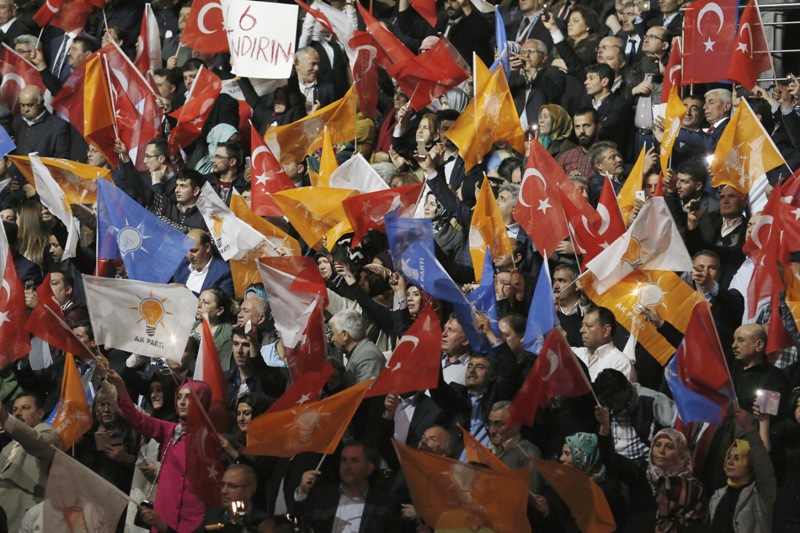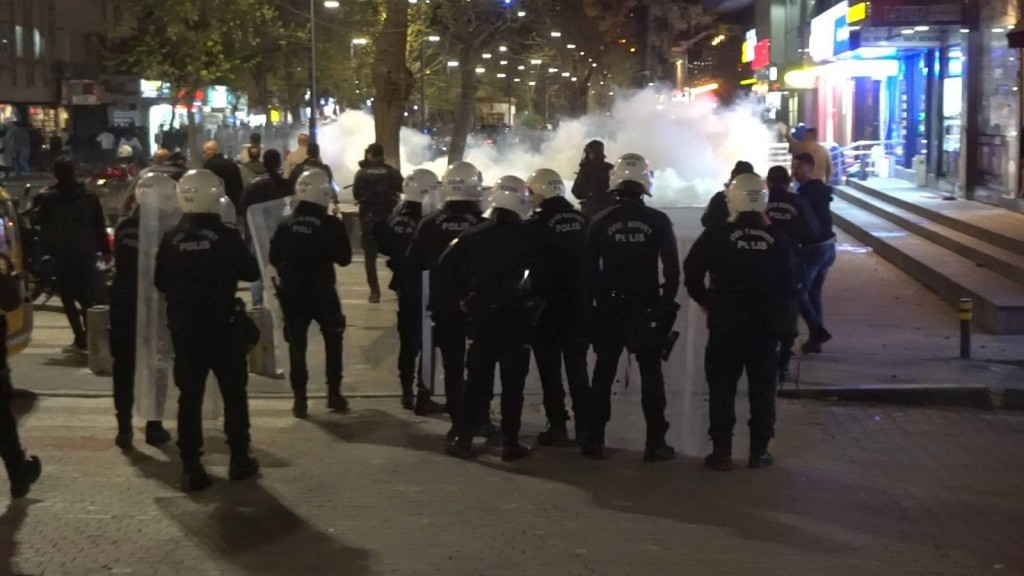Turkish media reported that Ankara public prosecutor Serdar Coşkun, head of the Bureau for Crimes against the Constitutional Order, wrote to the Turkish Satellite Communications Company (TÜRKSAT) Directorate General within the Ministry of Transportation, Maritime Affairs and Communications on April 27 asking it to prevent the satellite infrastructure from being used by media outlets close to an alleged “parallel structure” in the country.
That phrase is widely understood to describe adherents of a movement led by U.S.-based preacher Fethullah Gülen, which was formerly aligned with the ruling Justice and Development Party (AKP).
According to the Turkish press, the prosecutor argued that these media outlets were “creating polarization in the society and terrorizing people”. The reported request was made just weeks before Turkey is scheduled to hold general elections on June 7.
Turkish prosecutors, led by Coşkun, have sought the arrests of judges, prosecutors and police officers, as well as some journalists, in a massive crackdown that followed a corruption scandal that erupted in December 2013 and implicated high-ranking AKP officials and their family members and close associates.
The Turkish government has stated that the allegations of corruptions were part of a strategy to harm its reputation orchestrated by the U.S.-based preacher Fethullah Gülen. President Recep Tayyip Erdoğan has suggested that a “parallel state” within the Turkish bureaucracy and security services and allied with Gülen aims to overthrow the government, a claim Coşkun repeated in his letter to TÜRKSAT as a justification for denying services to broadcasters perceived to be linked to Gülen.
IPI and its affiliate, the South East Europe Media Organisation (SEEMO), blasted the move.
“Seeking to exploit state power, including control over critical infrastructure, to block media outlets from sharing unwelcome viewpoints is censorship and completely illegitimate absent a strong showing that those viewpoints are both intended and likely to cause violence”, IPI Director of Advocacy and Communications Steven M. Ellis, said. “We urge the ministry to disregard this request, which is an attack on Turkey’s people’s right to hear differing views and make up their own minds”.
SEEMO Secretary General Oliver Vujovic added that a diversity of media and sources of information were essential for freedom of expression, information and communication. “It is important for Turkey to have critical media,” he said. “Any action against the media in Turkey shortly before June’s general election is a clear attack on press freedom in the country.”
The Freedom for Journalists Platform (GOP) – an umbrella group representing local and national free expression groups in Turkey, including IPI’s Turkish National Committee – said yesterday that Coşkun’s proposal would deprive citizens of the right to be informed.
“Press freedom and rule of law are being trampled on”, GOP President Turgay Olcayto said. “The government wants a uniform newspaper, a uniform journalist.”
The move was the latest in a series of negative developments in recent years that have severely harmed media freedom in the country.
In March 2015, IPI published a comprehensive report on Turkey titled “Democracy at Risk”. The report cited a litany of serious threats to press freedom in Turkey, a candidate country for membership in the EU. Those threats include ongoing economic pressure on the media, a toxic political climate, manipulation of the legal framework via the use of anti-terror and criminal insult and defamation laws, misuse of broadcast regulatory powers, the imposition of content bans, continuing pressure on speech online and an ongoing climate of impunity for attacks on journalists.
The report also pointed to officials’ efforts to control coverage of various events by denying critical news media outlets accreditation or access to cover official events, and instances of police harassment or interference with journalists seeking to cover public demonstrations.



